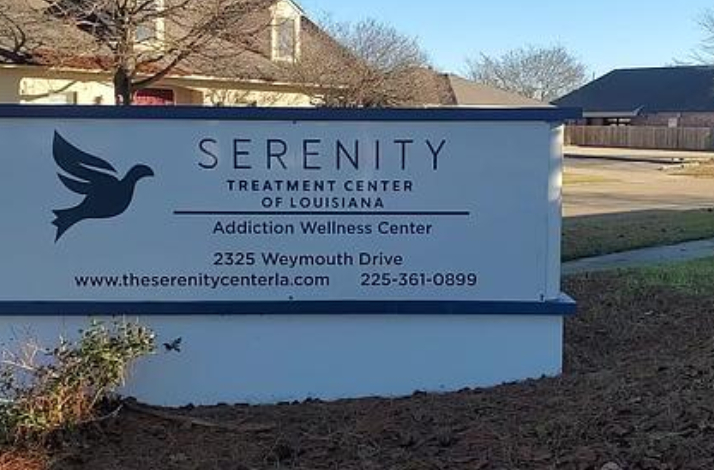The addictive power of cocaine is so strong that once someone becomes dependent on it, it can be incredibly challenging to overcome it. Fighting cocaine addiction cannot successfully be done alone. Leading Louisiana treatment facility, the Serenity Treatment Center, reports “substance and alcohol addiction can impact family, work and society. It is for that reason we emphatically believe that choosing the right facility is a critical choice.”
Fortunately, rehab programs, residential treatment programs, and intensive outpatient programs, like those offered by the Serenity Treatment Center, offer effective methods of combating cocaine addiction. Substance abuse and addiction affects individuals of all ages and backgrounds, but the road to recovery is possible.
Common Signs of Cocaine Addiction
Some common signs of cocaine addiction include an increased preoccupation with obtaining and using cocaine, even at the cost of personal relationships, work responsibilities, and financial stability. People who are struggling with cocaine addiction may also experience intense withdrawal symptoms when they stop using the drug, such as depression, anxiety, irritability, fatigue, and cravings. These symptoms can make it incredibly difficult to quit cocaine use, even when someone wants to.
Additionally, individuals who suffer from cocaine addiction may exhibit changes in their behavior and mood, such as increased aggression, paranoia, and erratic behavior. They may neglect their personal hygiene and appearance, and they may become increasingly isolated from friends and family.
Cocaine Withdrawal Symptoms and Detox
One of the most challenging aspects of cocaine addiction is the process of cocaine withdrawal. Cocaine withdrawal symptoms can range from mild to severe and can include depression, anxiety, fatigue, irritability, and an intense craving for more cocaine. The symptoms can last for several weeks or even months, and you are at risk of relapse during this period.
Detoxification (detox) is the first phase of treatment for cocaine addiction. During this process, individuals undergo medical supervision and receive 24/7 support from health professionals as they abstain from the drug. The purpose of detox is to remove cocaine from the body and manage withdrawal symptoms. The symptoms of cocaine withdrawal can be severe, which is why detox should be done under the supervision of medical professionals. With the right detox and residential treatment for cocaine addiction, it is possible to overcome these withdrawal symptoms and achieve addiction recovery.
After detox, individuals can join a rehab program for addiction recovery. A rehab program should provide a safe and supportive environment for individuals to overcome their addiction. It also includes different therapies to help them understand the root cause of the addiction and learn how to manage cravings and triggers that may lead to relapse. The length of a rehab program can vary depending on the individual’s needs and the severity of their addiction. It can range from 30 days to 90 days or more.
During the rehab program, individuals have access to a range of services, including individual therapy, group therapy, and family therapy. These services are essential for addiction recovery as they help individuals build important skills for sober living and relapse prevention.
Continuing Care Options for Cocaine Addiction Treatment
There are various continuing care options for individuals seeking cocaine addiction treatment. Outpatient and inpatient rehab programs provide structured treatment plans that address physical, emotional, and social aspects of addiction. These programs require patients to participate in various therapies and counseling sessions tailored to their specific addiction needs. Inpatient programs provide patients with comprehensive care and support services around the clock.
After completing the rehab program, attending aftercare programs is crucial in maintaining sobriety. Aftercare programs include weekly group therapy, individual counseling, and other support services. These services help individuals struggling with cocaine addiction to stay on track and overcome any potential relapse triggers. Along with these support services, regular communication with a counselor specializing in substance abuse is essential.
Outpatient rehab programs are often preferred by individuals who can manage treatment while maintaining their day-to-day lives. These programs are more flexible and allow patients to attend rehab sessions on their schedules. The focus is on the same therapies and counseling sessions, but patients can return to their homes after the session. This offers patients an opportunity to practice sobriety and integrate into society gradually.
Continuing care options are crucial for those seeking treatment for cocaine addiction. These programs offer a comprehensive approach to addiction recovery and ensure that individuals receive the necessary support and care to maintain sobriety. Participating in aftercare programs and continuing regular communication with a counselor specializing in substance abuse reduces the risk of relapse and provides the necessary support to maintain a drug-free lifestyle.
Contact Serenity Treatment Center of Louisiana’s Mid-Town Campus
If you or a loved one are struggling with cocaine addiction, it’s essential to seek professional help as soon as possible. Residential treatment in a rehab facility can provide effective and comprehensive support to overcome addiction. Contact a member of our team by calling us at (225) 361-0899 or filling out our online form.









